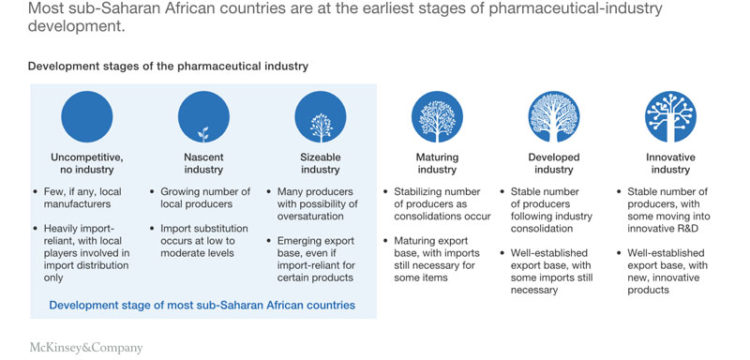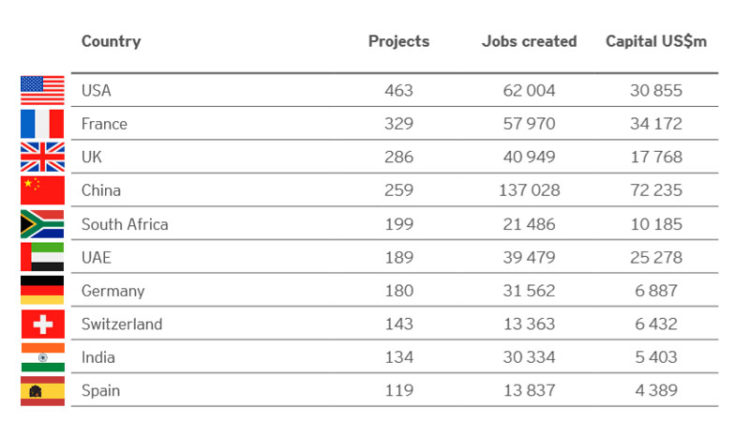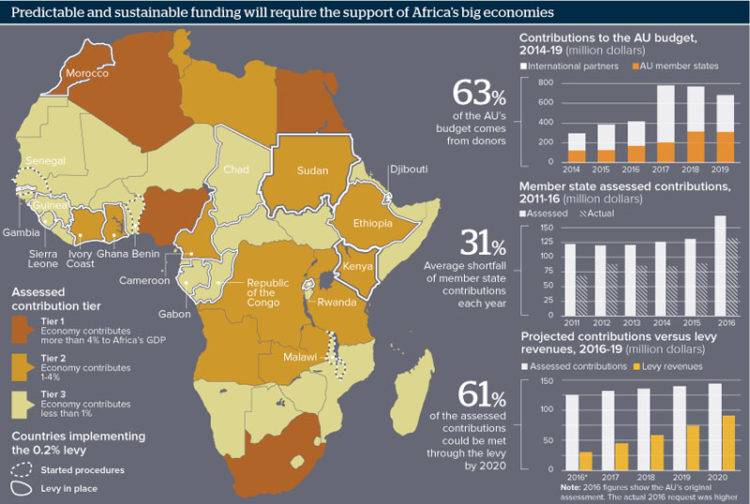First, some context.
There are over 30 million Africans spread across various countries around the world. The African Union estimates that about 70,000 skilled professionals emigrate from Africa every year. Cumulatively, the total number of African migrants in OECD countries could rise to 34 million by 2050.
Some African countries lose up to 70% of their health workforce to migration, and about one-fifth of African-born physicians work in High-Income Countries (HICs). When analyzed in monetary terms, the net loss of nine Low and Medium Income countries (LMICs) in Africa (Ethiopia, Kenya, Malawi, Nigeria, South Africa, Tanzania, Uganda, Zambia, and Zimbabwe), from the outflow of their trained physicians working in HICs, was $2.17 billion in 2011.
Nearly one-quarter of active physicians in the United States are international medical graduates (IMGs), and over 50% of IMGs are from LMICs. Breaking this down, almost 86% of these Africans practicing in the USA originate from only three countries: Nigeria, South Africa, and Ghana. That means there are probably more Ghanaian doctors in New York City than in all of Ghana, and more Nigerian doctors in Los Angeles than in Nigeria.
Over the past few weeks, I’ve had a series of discussions on the need for Africans, both at home and abroad, to be at the forefront of the efforts to address the SARS-CoV-2 pandemic on the continent.
In this post, I want to share with you three critical tips on how the African diaspora can help in minimizing the enormous shock waves of the pandemic across the continent.
Here are my recommendations.
Share your expertise with your home country
These are uncertain times – not only for many African countries but also for the world at large.
Notwithstanding, the continent could benefit the most from this situation. The fallouts from the pandemic could be a catalyst to spur an innovation renaissance in Africa.
But for this to happen, African diaspora will play a critical role by sharing their expertise with their home countries. By leveraging their skills, ingenuity and technological know-how, the African Diaspora can further economic growth on the continent.
Let’s take the pharmaceutical industry for example. Of all the 54 countries on the continent, only Kenya, Nigeria, and South Africa have a relatively sizable pharmaceutical industry, with dozens of companies that produce for their local markets and, sometimes, for export to neighboring countries, according to McKinsey. Most African countries import as much as 70-90% of their drug consumption from overseas.
Pharmaceutical manufacturing in sub-Saharan Africa falls behind other regions.
This needs not be so. Africa has to produce its own drugs. And Africa’s diasporas can help to mitigate the quality assurance and expertise challenges that often limit this agenda.
The gains of increased local pharmaceutical manufacturing are well-defined: enhanced regulations on quality and safety, economic diversification, GDP growth, job creation, access to, awareness of, and availability of needed medicines, and so on.
As the race towards a coronavirus vaccine progresses, Africa must not be at the receiving end. Instead, it should be at the epicenter of the action. We’ve seen the remarkable work of experts like Dr. Babafemi Taiwo, who is a leading voice in a study on the antiviral drug Remdesivir.
Surely, there are more medical experts, engineers, scientists, researchers, and analysts like Dr. Taiwo. If you are one, it’s time to be vital in helping your home country find contextualized solutions to the needs of its people.
Speak up for Africa wherever you find yourself
Source: EY. 2019. Africa Attractiveness Report
Representation matters a lot.
Sadly, the hegemonic representative of Africa and black people borders around poverty, instability, disease, illiteracy, and conflict. They often see the continent as a land of waste, where dreams die.
Take, for example, the recent incident where a Chinese museum juxtaposed photographs of animals with portraits of black Africans. All the photographs of the exhibition in question were taken by a certain Yu Huiping, who has traveled to Africa over 20 times. One would expect that with such knowledge of the continent, he wouldn’t perpetuate the ethnic stereotypes that have stalled the China-Africa cooperation for so long.
By and large, we see the same unfair misrepresentation of the continent in the ongoing discourse on the potential impact of Covid-19 on Africa. For instance, the United Nations Economic Commission for Africa (UNECA) in April released a report stating that anywhere between 300,000 and 3.3 million African people could lose their lives because of Covid-19.
The problem with these types of modules is, first, they are misleading – as there’s a wide gap between on-the-ground reality in the virus’s spread and their projections. Second, they often accentuate the notion that people of African heritage are helpless and can only be the recipients of aid. They refuse to acknowledge the many wonderful innovations coming to light in many African countries.
As an African diaspora, this is a wake-up call. Although you’re part of a global community, when it comes to issues like policy and development framework, remember home. You can help to influence policy, dispel myths, and change the unfortunate colonial ideology. Your intellectual and political assets could help to shed light on under-reported success stories and solutions to development challenges as well as design policies that are fit for purpose.
Help the continent close the Covid-19 funding gap
Source: African Union. Oxford Analytica Daily Brief
According to the World Bank’s biannual Africa’s Pulse report, economic growth in sub-Saharan Africa will decline from 2.4 percent in 2019 to between -2.1 percent and -5.1 percent in 2020. This depends on the success of measures taken to mitigate the effects of the pandemic. The report predicts that sub-Saharan Africa will experience its first recession in 25 years, as a result of SARS-CoV-2.
A decreased economic activity in the region, and disruption in the global economy affecting Africa’s participation in trade and value chains and reducing foreign financing flows will cause real GDP growth in sub-Saharan Africa to decline to -2.1 percent in 2020. This projected decline will be mainly because of large contractions in South Africa, Nigeria, and Angola driven by over-reliance on exports of commodities with declining prices and other structural issues.
The African diaspora can help the continent offset the burden of the contraction in GDP. Diaspora remittances dwarf all official development aid in many African countries such as Ghana, Kenya, and Uganda. But that’s not all. The diaspora has also shown its potential as a reliable partner in times like this.
Case in point, during the West African Ebola outbreak of 2014, the African diaspora raised millions of dollars and sent thousands of volunteers to assist a special mission set up to coordinate the African Ebola response in West Africa by the AU.
This is another opportunity to make a difference. Whether it’s in contributing your own money, crowdfunding for national projects or negotiating for fair contracts and debt relief, there are many ways to help your home country recover from the impact of Covid-19 on the economy.
The bottom line
The continent has shown incredible resilience in mitigating epidemics in the past. This time will not be an exception.
But as the African proverb goes, until the lion learns how to write, every story will glorify the hunter. Despite the remarkable progress recorded by many African countries in stopping the pandemic so far, the narratives are not without the usual pitch of stereotypes and reservation. We can change that.
However, this might be the only chance to make a significant impact in transforming lives on the continent, influencing policies, and helping to close the funding gap. We know this to be true: the future of Africa is synonymous with the future of the world. The people who are looking for ways and means to override our institutions and cut down our population shouldn’t be the ones making decisions for us. Step up and make your expertise, voice and influence count at this crucial time!
Tom-Chris Emewulu is the Founder & President of SFAN (Stars From All Nations), an education company that unlocks the potentials of young people through EPIC events and a six-week talent accelerator program called Readyforwork. He is an education and policy enthusiast, entrepreneurship and career coach, Seedstars Ambassador for Ghana, an aspiring Venture Capitalist, and a former consultant at the Mastercard Foundation. He is also the author of forthcoming book Breaking the Limits. His works have been featured in Forbes, DW, Ventures Africa, Business Insider and other publications. Follow him on Twitter or LinkedIn.



